Refine
Date Range Clear
Recorded by Clear
Keywords Clear
- volcanolgy 88
- mars 88
- Future 88
- NASA 62
- Mt.St.Helens 88
- #womeninscience 30
- planetary 18
- #AGU 88
- #AGU100 86
- discovery 45
- Advice 18
- data 15
- career path 14
- 237 more
Partnerships Clear
- No matching terms.
Organizations Clear
- American Geophysical Union 21
- National Aeronautics and Space Administration 7
- Ameican Geophysical Union 1
- Ameican Geophysican Union 1
- American Geophsyical Union 1
- 4 more
Places Clear
Languages Clear
- No matching terms.
Initiatives Clear
- No matching terms.
As a child, Luke Oman was always looking out the window. Today, he works on atmospheric processing for NASA. How do volcanic eruptions affect everyday life? What happens when sulfur dioxide gases from volcanoes interact with sulfate aerosol and stay...
Glenn Orton is so deep in Jupiter mission information that he gets envious when he’s not involved in a space project studying the gas giant. The senior research scientist at the NASA Jet Propulsion Laboratory studies the composition and structure...
While Patrick Taylor spends a huge chunk of his time in the clouds, his work has nothing to do with daydreaming. The Research scientist at NASA’s Langley Research Center is working on understanding more about the role of clouds in...
Sandra Cauffman was told growing up in Costa Rica that she couldn’t be an electrical engineer because she was a woman. Decades into a career which has largely involved getting her hands dirty building instruments to fix on spacecraft, the...
How did Biogeoscience become a recognized field of study, with its own journal and sections at AGU? What obstacles did its organizers have to overcome in order to make it a viable field and a welcome presence at AGU? In...
Woody Turner, the program scientist for biological diversity and manager for ecological forecasting programs at NASA, and one of the few people in the world who directly harness the power of space to solve a whale of a problem –...
Louise Prockter knows a thing or two about logistics and planning. When the first image of the unseen hemisphere of Mercury popped onto the screen during a flyby mission, her first thought was, "oh thank God, it's in the middle...
Miguel Román, a Physical researcher Scientist at NASA's Goddard Space Flight Center, shares his journey from his childhood in San Juan, Puerto Rico to NASA. Seeing the impacts of hurricanes and urban growth where he grew up, and the practical...
Michael Freilich, Director of NASA's Earth Science Division, shares about his life studying the oceans and Earth as a system. While still in his high school's oceanography club, he started exploring a question about how waves move that later became...
Lori Glaze, Acting Director of the Planetary Science Division at NASA Headquarters, works with everything from understanding asteroid trajectories and material make up to the InSight mission which recently landed a rover on Mars. It’s no exaggeration to say Lori...
David Young, Director of Science at NASA Langley Research Center, discusses his life's work studying the earth's climate. After an early interest in astrophysics, he focused in on earth science due to his desire to do research to help humans....
The start of a fruitful career for Richard Eckman was being on a team which discovered that the stratosphere and ozone varied in relation to the sun’s 27-day rotation. Eckman, who now works with NASA’s Atmospheric Composition Modeling and Analysis...
Ingrid Hendy, Professor at the University of Michigan and section president-elect, shares stories about discoveries in her field and the challenges she faced. She reflected on the curious zebra striped sediment that lured her into her field – mud she...
For Ved Lekic, the opportunity to interview his mentor, Barbara Romanowicz, was a little daunting, so he brought along some questions. Once the conversation turns and Ved has a chance to answer some questions as well, we meet a very...
Sabrina Savage builds instrumentation for solar physics and studies solar flares at NASA’s Marshall Space Flight Center. The technology she helps create delivers the most high-resolution pictures of the sun anyone has ever seen. In a society more dependent upon...
Christopher Shuman is on faculty at University of Maryland Baltimore County and a research scientist in the Cryospheric Sciences Lab at the NASA Goddard Space Flight Center. Christopher has extensive work history in Greenland and in Antarctica, analyzing layers in...
Cloud scientist Steven Platnick is trying to learn how clouds may magnify—or minimize—the effects of climate change. He first got excited about clouds when his Ph.D. advisor, who "treated us like equals," started asking questions about clouds. "He asked questions...
Brad Doorn’s, Water Resources and Agriculture Applied Science Program NASA, work includes forecasting the global food supply, including warnings and predictions about possible problems that might arise due to water supply shortages which can inform global market prices. While the...
Through his work with SERVIR, Ashutosh Limaye could be described as one of Earth’s watchdogs. The project scientist at the Marshall Space Flight Center’s job is to take NASA satellite data back down to the Earth and help people use...
Kathy Cashman, professor at the University of Bristol, worked on the 1980 eruption at Mount St. Helen’s in Washington, one of the first monitored volcanic eruptions in the world (“it was a ‘who’s who’ of volcanology and geology”). Thanks to...
As a deputy section manager at NASA’s Jet Propulsion Lab, Carmen Boening is keenly focused on rising with the tide. The trouble is, the water level isn’t going down as the climate warms. Partly through the monitoring of a set...
Rosaly Lopes is a planetary geologist at NASA’s Jet Propulsion Lab. She discovered seventy-one new volcanoes on IO, for which she was recognized in the Guinness Book of World Records. She uses her research into the surface of other planets...
Alex Young has a great finger on the weather. But the Associate Director for Science in the Heliophysics Science Division at NASA's Goddard Space Flight Center’s attention is focused far higher than any storm cloud. He studies space weather and...
What starts as a conversation about arctic change is actually an all-encompassing discussion about career growth, patience, and personal growth. Walt Meier, National Snow, and Ice Data center, introduces us to Jackie Richter-Menge, US Arctic Research Commission, who has spent...
Dr. Jim Green has spent 38 years of his life working at NASA. He started there with a fresh Ph.D. in Earth magnetospheric science and helped pioneer the magnetosphere research group at Marshall Space Flight Center. He spent 12 years...


!["Something I learn today is something that [could help] society tomorrow." an interview with Patrick Taylor](https://archive.storycorps.org/uploads/2019/02/181211_PatrickTaylor-450x450.jpg)





!["I joined an Oceanography club & actually asked the question that ended up [being] my thesis." an interview with Michael Freilich](https://archive.storycorps.org/uploads/2019/02/181212_Freilich-450x450.jpg)



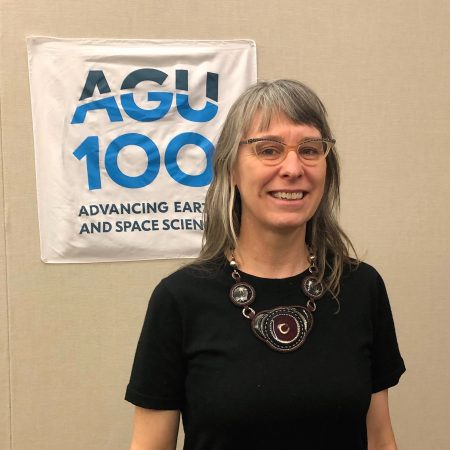
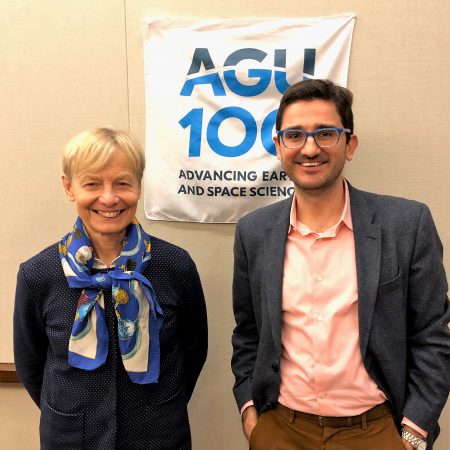
!["The sun is a terrifying and beautiful laboratory of which we know only a little [about]." an interview with Sabrina Savage](https://archive.storycorps.org/uploads/2019/02/20181213_Savage-450x450.jpg)
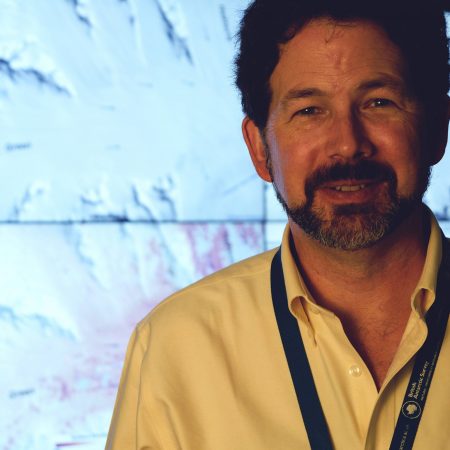

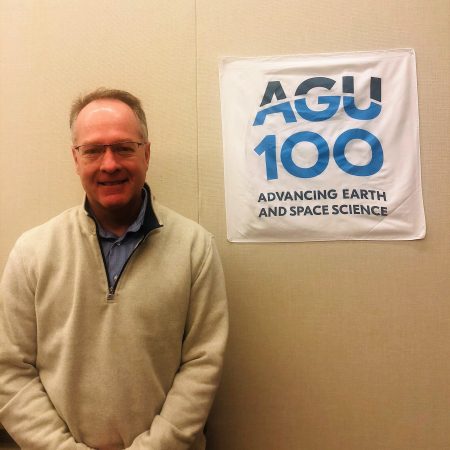
![“[Better satellite monitoring] will improve our ability to bridge the gaps between the haves & have nots." interview with Ashutosh Limaye](https://archive.storycorps.org/uploads/2019/02/181213_Limaye-450x450.jpg)
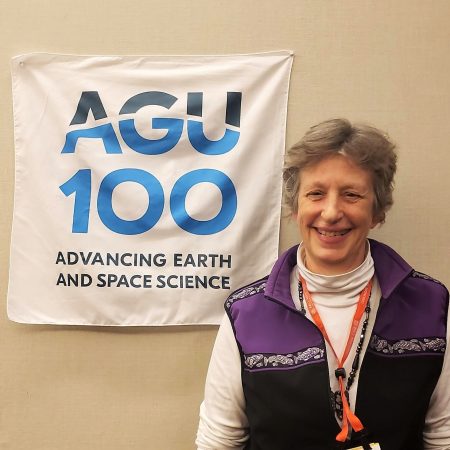
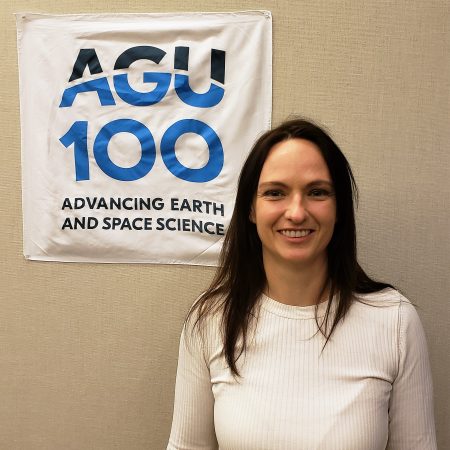
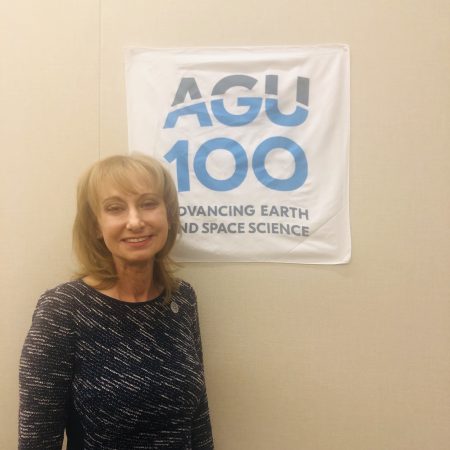
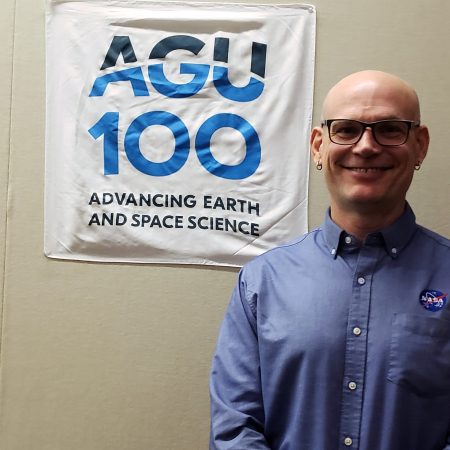
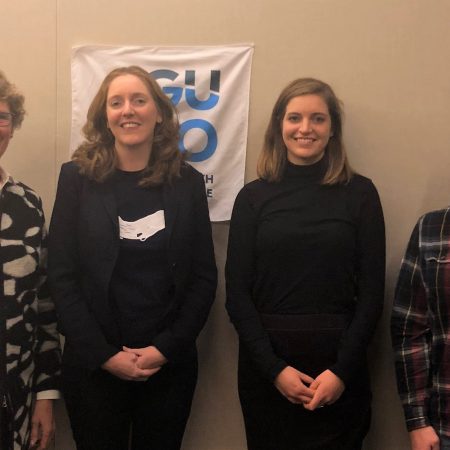
!["We're moving through a period of understanding [other] planets & how they relate to life on Earth." interview with Jim Green by Kim Cartier](https://archive.storycorps.org/uploads/2019/01/181210_Green-450x450.jpg)